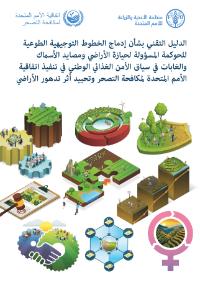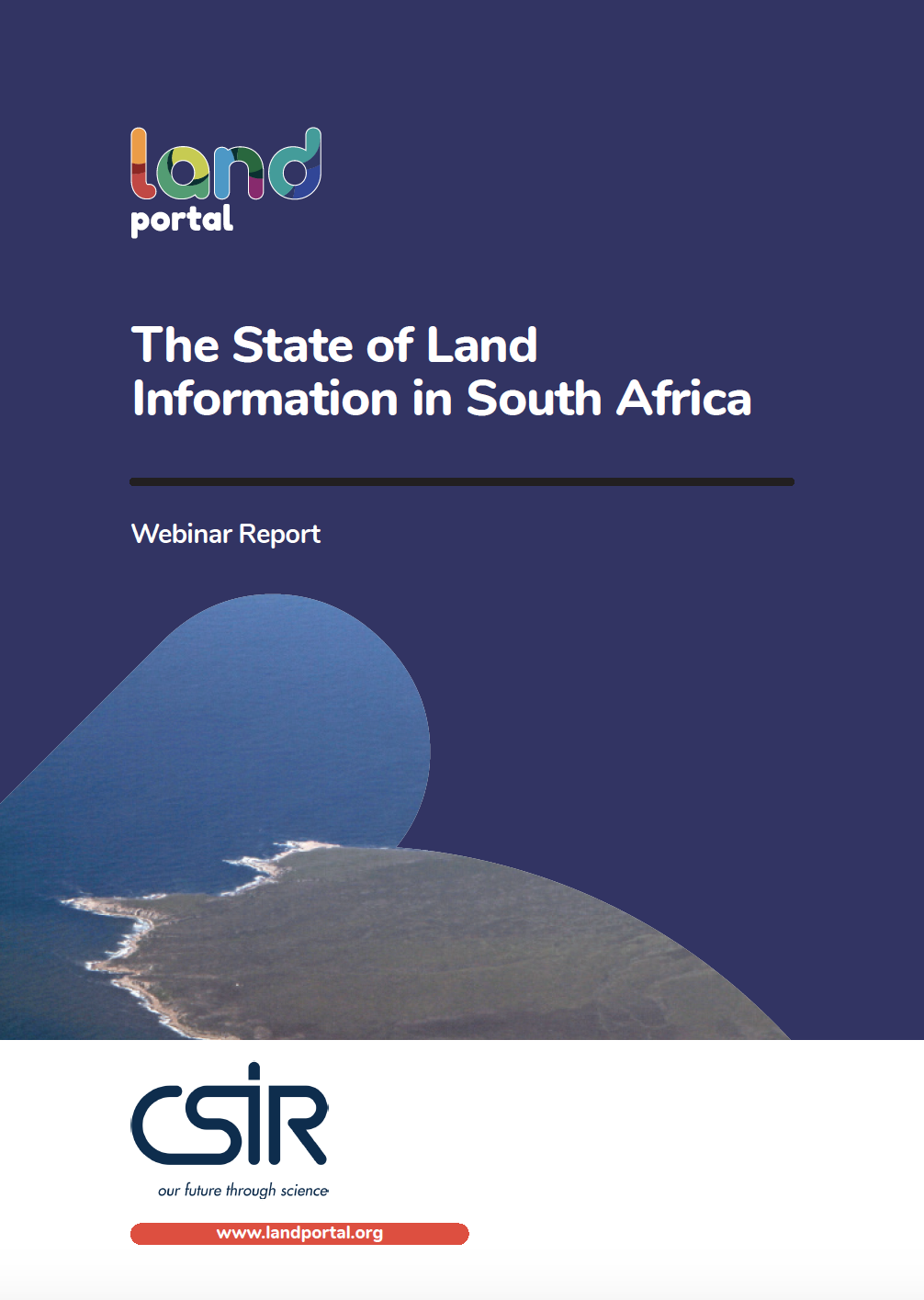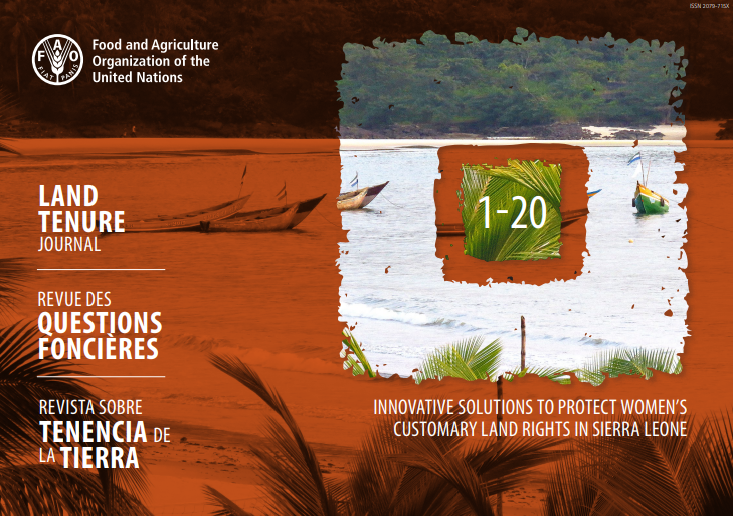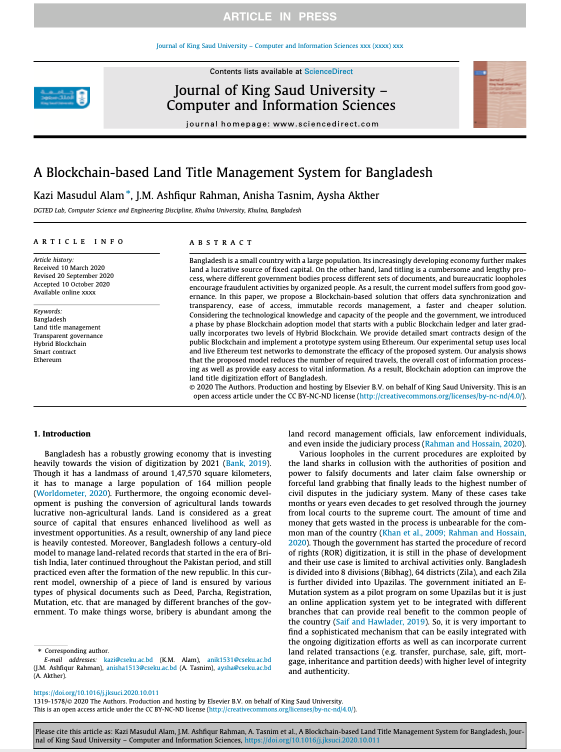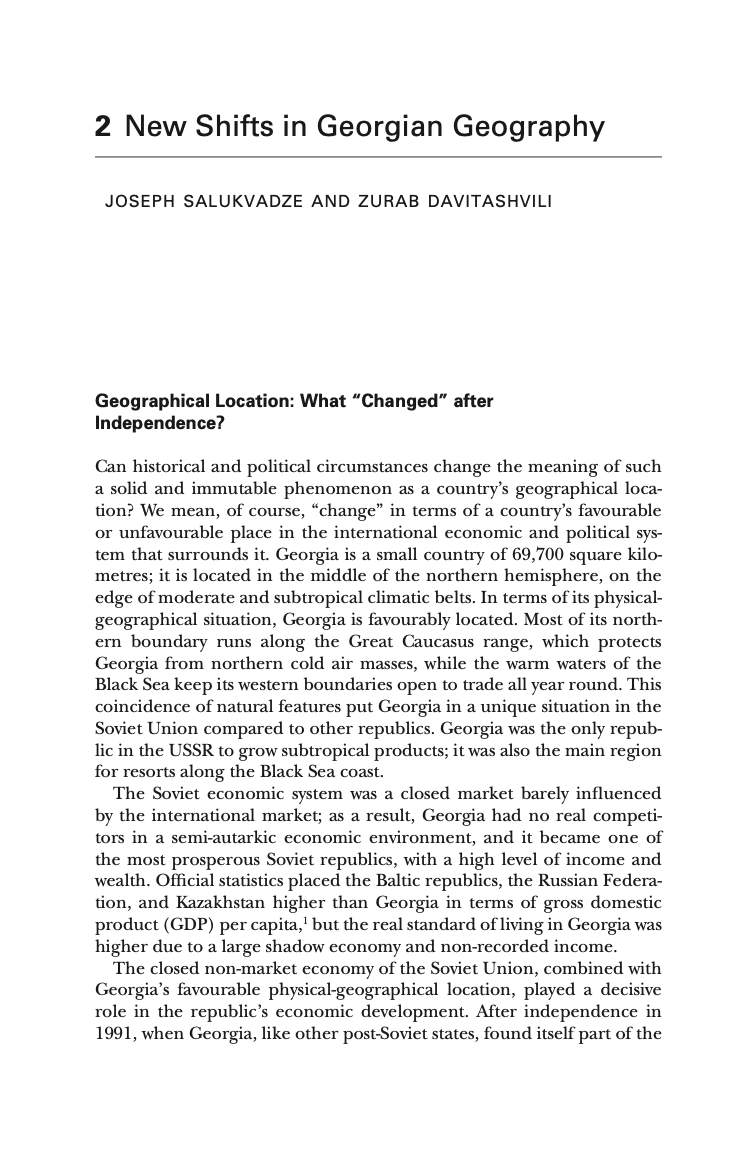Poster: Tackling Land Corruption with Open Data
Open Data is data that can be freely used, shared and built-on by anyone, anywhere, for any purpose. Open Data is widely considered to be an effective response to land corruption by increasing transparency, supporting innovation and increasing civic engagement. Advocates of open data believe in its potential for empowering citizens to gain more insight on government spendings and land-related decisions; giving civil society greater power to hold governments accountable for their actions.
Local Domain Models for Land Tenure Documentation and their Interpretation into the LADM
Abstract With an estimated 50% of global land held, used, or otherwise managed by communities, interfacing indigenous, customary, and informal land tenure systems with official land administration systems is critical to achieving universal land tenure security at a global scale. The complexity and organic nature of these tenure systems, however, makes their modelling and documentation within standard, generic land administration systems extremely difficult.
الدليل التقني بشأن إدماج الخطوط التوجيهية الطوعية للحوكمة المسؤولة لحيازة الأراضي ومصايد الأسماك والغابات في سياق الأمن الغذائي الوطني في تنفيذ اتفاقية الأمم المتحدة لمكافحة التصحر وتحييد أثر تدهور الأراضي
يتناول هذا الدليل التقني، الذي اشتركت في إعداده أمانتا منظمة الأمم المتحدة للأغذية والزراعة (الفاو) واتفاقية الأمم المتحدة لمكافحة التصحر، بمساهمات من أصحاب المصلحة المتعددين، إدماج المبادئ التوجيهية الطوعية بشأن الإدارة المسؤولة لحيازة الأراضي ومصائد الأسماك والغابات في سياق الأمن الغذائي الوطني في تنفيذ اتفاقية الأمم المتحدة لمكافحة التصحر وتحييد أثر تدهور الأراضي. وبالتالي فتح فصل جديد في الجهود الجارية لمكافحة التصحر وتدهور الأراضي والجفاف.
The State of Land Information in South Africa
What is the state of land information in South Africa? Is there really a lack of land data to support decisions and to improve land governance? This was the point of departure that a team of specialists grappled with to uncover the many different sources of land data and information available in South Africa. For the very first time, they attempted to systematically review and categorize the entire ecosystem of data and information related to key land topics in the country, assessing over 104 land datasets from 59 different sources.
INNOVATIVE SOLUTIONS TO PROTECT WOMEN’S CUSTOMARY LAND RIGHTS IN SIERRA LEONE
Within the framework of implementing the Voluntary Guidelines on the Responsible Governance of Tenure of Land, Fisheries and Forests in the Context of National Food Security (VGGT), this paper summarizes the empirical findings from three sequentially related phases of the Food and Agriculture Organization’s (FAO) VGGT programme, implemented as a pilot project in 2018. The methodology used relied first on context analysis of the critical aspects influencing and hindering women´s land rights.
Satellite woreda approach - overview on performance and sustainability
This study assesses the impact of the Satellite Woreda Approach on rural land administration performance of 28 woredas and critical success factors to institutionalise the approach.This resource was published in the frame of the Land Investment for Transformation (LIFT) Programme. For more information;please check: https://landportal.org/community/projects/land-investment-transformation...
Trends in Urban Corruption
In 2015, 193 countries affirmed their commitment to the 17 goals of the 2030 Agenda for Sustainable Development, including Germany. According to an estimate by the United Nations in 2018, the international community loses 5% of global gross domestic product through corruption. Effective measures to combat corruption are therefore a prerequisite for achieving the ambitious goals of the 2030 Agenda.
Land Matters
Responsible Land Policy in Uganda (RELAPU) is a project implemented by the German International Cooperation (GIZ) and financed by the German Federal Ministry for Economic Cooperation and Development (BMZ). BMZ created the Special Initiative “One World, No Hunger”, aimed to eradicate extreme hunger and poverty. Within this special initiative, RELAPU is part of the Global Programme on Responsible Land Policy presently implemented in eight countries.
A Blockchain-based Land Title Management System for Bangladesh
Bangladesh is a small country with a large population. Its increasingly developing economy further makes land a lucrative source of fixed capital. On the other hand, land titling is a cumbersome and lengthy process, where different government bodies process different sets of documents, and bureaucratic loopholes encourage fraudulent activities by organized people. As a result, the current model suffers from good governance.
Promoting Responsible Governance of Investments in Land (RGIL) in Ethiopia
The “Responsible Governance of Investments in Land” (RGIL) project in Ethiopia aims at ensuring that investments in land are productive, contribute to sustainable land management, and respect the rights and needs of local populations, in particular vulnerable groups and women.
New Shifts in Georgian Geography
Can historical and political circumstances change the meaning of such a solid and immutable phenomenon as a country’s geographical location? We mean, of course, “change” in terms of a country’s favourable or unfavourable place in the international economic and political system that surrounds it. Georgia is a small country of 69,700 square kilometres; it is located in the middle of the northern hemisphere, on the edge of moderate and subtropical climatic belts. In terms of its physicalgeographical situation, Georgia is favourably located.



